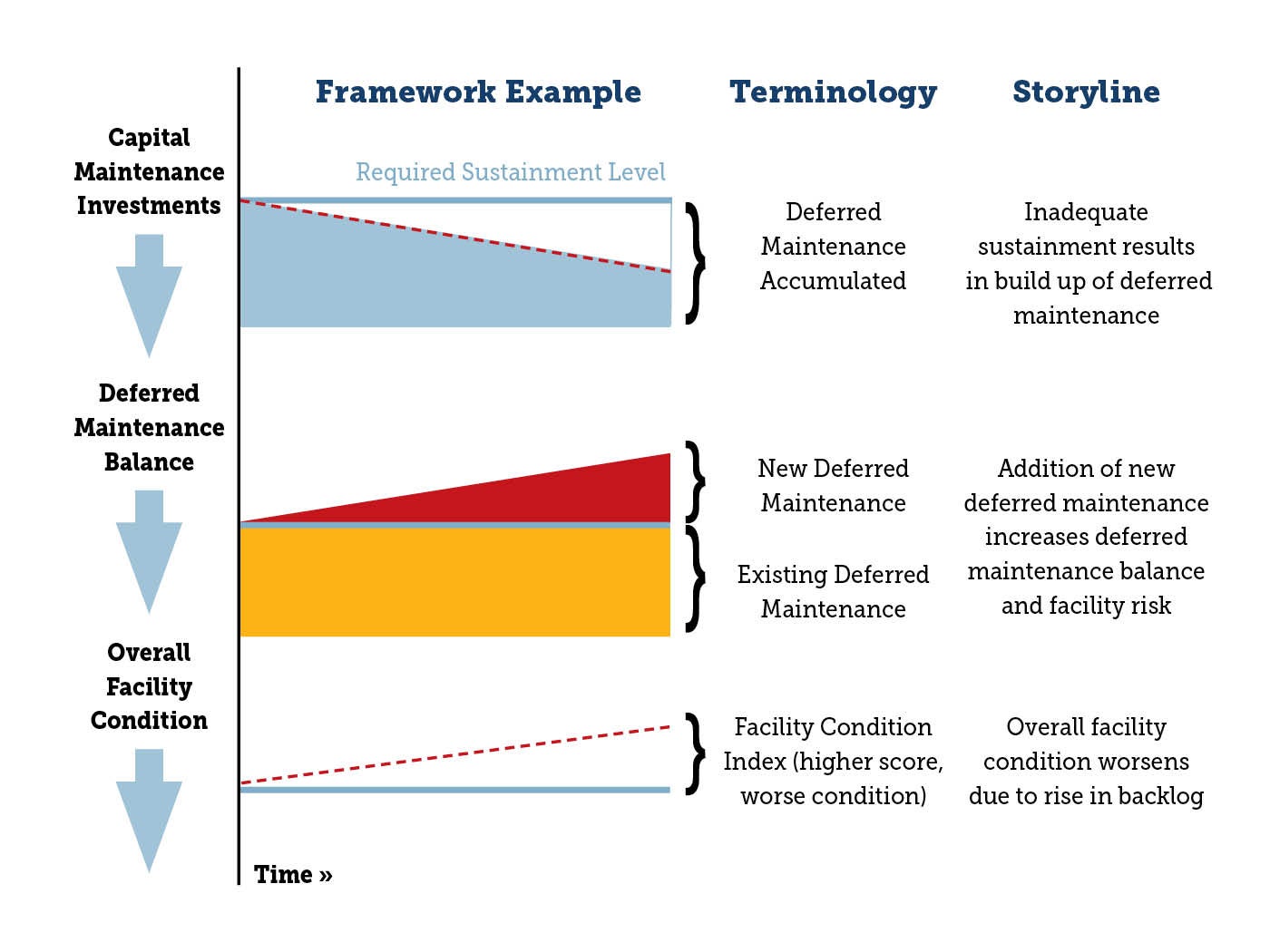Creating a reliable renewal program
Facilities managers know when things are going wrong, and when critical assets need to be replaced. They talk about replacing chillers, cooling towers, air-handling units and boilers, but these concerns often go unfunded. Understanding the relationship between capital renewal investments, deferred maintenance and the facility condition is essential to creating a reliable capital renewal program. To better understand the relationships, one must understand what these items are:
- Capital renewal is the investment into the sustaining of the existing facility assets rather than adding new functionality.
- Deferred maintenance is the accumulation of infrastructure assets that have exceeded industry-expected useful life based on age and/or condition for which repairs, upgrades or replacement is delayed and backlogged. While these assets may not be in imminent failure mode, the lifespan or condition indicate an accumulation of risk.
- Facility condition index (FCI) is the total cost of needed building repairs and renewal divided by the current cost of replacing the building. Each building’s FCI score reflects the current condition of the building: good, fair, poor or critical.
As shown in the graphic below, there is a negative correlation between capital renewal investment and deferred maintenance and the overall facility condition (i.e., the more the capital renewal investment, the lower deferred maintenance and the FCI). Conversely, the less the capital renewal investment, the higher deferred maintenance and the FCI become, which in turn increases the risk to the organization.
With the understanding that increased deferred maintenance and a higher FCI creates a greater risk to the functionality of the organization’s ability to provide mission-critical services, there is a greater understanding of the importance of capital renewal investment. Being able to clearly communicate these relationships throughout the organization is vital to being able to establish a viable capital renewal program.
Jonathan Flannery, MHSA, CHFM, FASHE, FACHE, senior associate director of advocacy for ASHE.






